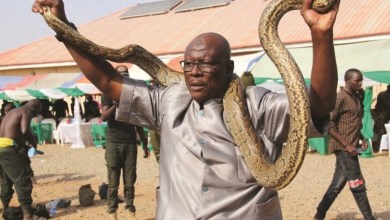House of Representatives Postpones Vote on Emergency Rule in Rivers State Due to Low Turnout

The House of Representatives has deferred voting on a motion regarding the possible declaration of a state of emergency in Rivers State due to a low turnout of lawmakers at the plenary session. The anticipated decision, which had drawn significant public and political attention, was expected to address the escalating political tensions and security concerns in the state.
During the session, a quorum could not be formed, leading to the postponement of discussions on the matter. The proposal for emergency rule, reportedly under consideration by the federal government, has sparked debates among stakeholders, with some supporting the move as a means of restoring order, while others argue that it could deepen the crisis.
Rivers State has been at the center of a political standoff between factions within the ruling All Progressives Congress (APC) and the opposition Peoples Democratic Party (PDP). The power struggle, coupled with allegations of interference in state governance, has heightened tensions, raising fears of instability.
Although President Bola Ahmed Tinubu has not officially declared a state of emergency, the mere possibility has fueled speculations about federal intervention in the state’s affairs. The House of Representatives was expected to deliberate on the situation and potentially make recommendations, but the absence of a sufficient number of lawmakers led to the delay.
Political analysts believe that any decision on Rivers State’s governance must be carefully weighed to prevent further division and unrest. Meanwhile, key stakeholders, including state government officials and opposition leaders, continue to voice their positions on the matter.
The House is expected to revisit the issue in subsequent sessions, depending on developments in the state and the readiness of lawmakers to engage in deliberations.












